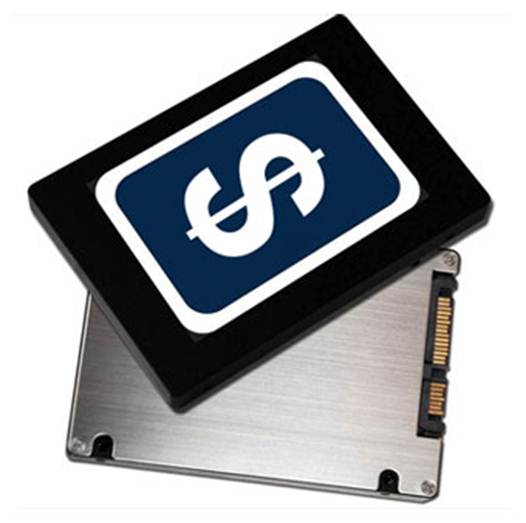Want to buy an SSD but don't know what to
look for? We help you find out
The popularity of solid state drives has
been rising steadily for the past few years, but only recently have they
reached a point where they've become a truly viable option for the majority of
computer users. But how are they different from the average hard drive, and why
might you want one?

How
To Buy…SSD Drives?
The main benefit of solid state drives is
the dramatically quicker access times they have compared to the traditional
platter-based hard disk drive. Even the slowest of SSDs can vastly outperform
the quickest HDD. By replacing slow, mechanical platters with much faster
transistors, they eliminate a substantial bottleneck in system performance:
random access takes 1 millisecond instead of 5 to 10.
You might not think that milliseconds can
make a difference, but tell that to the people trying to outrun Usain Bolt last
week. Stacked up on top of one another, multiplied by the speed your computer
can run at given the chance, you'll soon see the difference an SSD can make.
Speed improvements will pop up in every aspect of your operating system, from
reduced boot times to quicker thumbnails.
Data integrity is also improved. No moving
parts means that SSDs are much less likely to crash than hard drives are, and
where hard drive failure rates rise dramatically after three years of use,
current statistics suggest that SSD failure rates remain steadily low for as
long as five.
Compared to hard disk drives, SSDs also
take up less space in a system, run cooler, and use less power. Admittedly,
they're more expensive per-gigabyte and have vastly lower capacities than
modern hard drives, but that's the trade-off you have to come to terms with. Do
you want a sports car or a family saloon?
To help you decide, we're going to help you
figure out what it is that makes an SSD worth owning. It isn't always an easy
leap to make - not least because hard disk drives are bigger, cheaper and
faster than they've ever been - but we think there are plenty of benefits worth
considering, and hopefully once you've read the next few pages you'll agree.
How much should you spend?
The amount you need to spend on an SSD
depends most heavily on the amount of space you feel that you need in your
system. The more space you want, the more expensive the price will be - but
only pay for the space you need.

How
much should you spend?
If you're looking for a bargain, it's worth
paying attention to the cost per gigabyte. To work this out, all you need to do
is divide the price by the number of gigabytes, and then use the resulting
value to compare the relative cost of individual SSDs to determine which good
value is and which aren't. For reference, anything costing over 90p per gigabyte
should be considered bad value, and anything under 80p per gigabyte is very
good value.
However, it's easy to say 'only pay for the
space you need' - but how much space is that? At present, SSD drives are vastly
more expensive than typical hard disk drives on a cost-per-gigabyte basis. The
frankly ridiculous capacity of modern hard drives has allowed many of us to go
soft on recognizing what our own data requirements actually are. True, you can
get multiple terabytes of HDD space for the price of a fairly modest SSD, but
you won't get the other benefits SSD offers with a hard drive. Be honest with
yourself: how much space are you using, and do you need it all?
“For reference, anything costing more than
90p per gigabyte should be considered bad value”
Under current market conditions, we
recommend spending somewhere from $235.5-$314 for a 240/256 GB drive, which
should be enough for you to run your operating system and any games or large
applications off without the need to constantly delete and reinstall software.
If you think you need more space than that
(for example, if you have a large selection of media that you don't want to
archive) then don't just buy an SSD with a greater capacity than 256GB (which
will likely add hundreds of pounds onto the price). Instead, consider getting a
separate 500GB or 1TB hard drive which you can use alongside it as a media
archive. Although programs are substantially improved from running off an SSD
drive, you won't see any hugely visible benefits from housing video, photos and
music on one, so don't pay extra just to do so.